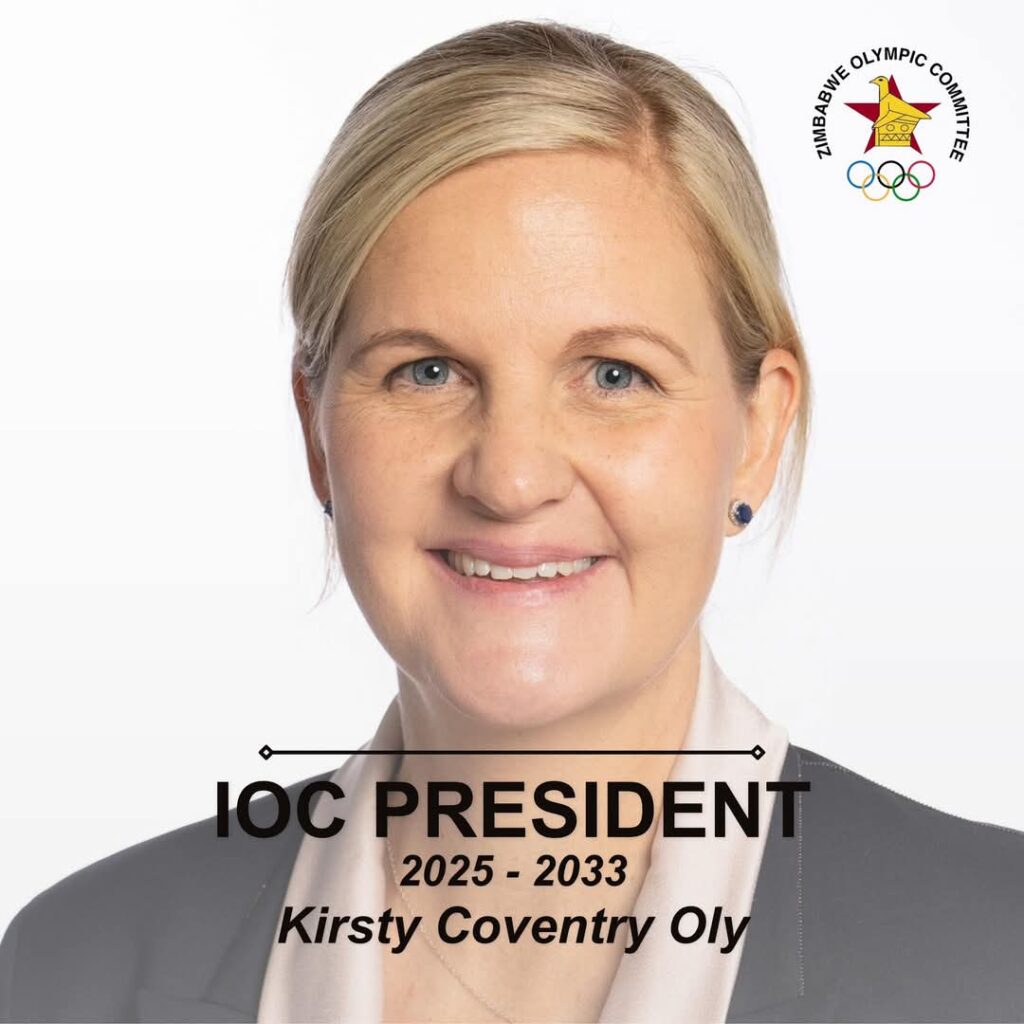A Case of Sour Grapes??
An Opinion
By Harry Taruva in Sydney, Australia and Delicious Mathuthu in Harare, Zimbabwe.
Harare, Zimbabwe – A snobbish article penned by British Broadcasting Corporation (BBC)’s Dan Roan, Sports Editor, on Kirsty Coventry’s historic election victory, becoming the first International Olympic Committee’s (IOC) female and African president, seems less of an objective analysis but a bitter lament over the defeat of their favored fellow British candidate, Lord Sebastian Coe.
While Coventry’s groundbreaking achievement should be celebrated, the BBC’s framing reflects a condescending tone toward her victory, casting doubts over her qualifications while subtly suggesting that only Western candidates like Coe are entitled to such prestigious international roles.
From the outset, Roan’s article titled ‘Groundbreaking but controversial – new IOC President Coventry’ written on Friday 21 March, 2025, points to the “controversial” nature of Coventry’s win rather than celebrating the remarkable milestones she represents, a young African woman shattering glass ceilings in an organization historically dominated by European men.
Despite securing a landslide victory, with 49 out of 97 votes in the first round, a clear and decisive mandate, the BBC casts suspicion on the legitimacy of the process by suggesting her success was due to outgoing president Thomas Bach’s favoritism.
Instead of acknowledging her decade-long contributions to the IOC, and her impressive sporting credentials, the bitter article fixates on the idea that Coventry’s win reflects “continuity and patronage.”
The subtle narrative implies that her victory was engineered rather than earned, dismissing her extensive experience and leadership in Olympic affairs.
Notably absent is any serious reflection on why Lord Coe, despite his high profile, failed to gain the trust of what he calls an “exclusive” organisation which consists of royals, heads of state, former athletes and figures from business and politics, despite outgoing IOC president’s alleged propping of Coventry.
“Lord Coe meanwhile, the highest profile candidate with a CV that boasts overseeing London 2012 and running World Athletics, could only muster a meagre eight votes,” Roan’s article acknowledges, a 41 vote difference.
The BBC suggests that the IOC’s reluctance to embrace Coe’s flopped “reform agenda” represents a failure on the part of the institution rather than a lack of appeal in his candidacy.
The article’s portrayal of Coe as a bold reformer rejected by a “secretive” and “resistant” organization suggests an underlying belief that Western figures are the rightful architects of global governance.
By contrast, Roan subtly depicts Coventry as a figurehead propped up by the status quo.
The narrative fits a recurring pattern where some Western media outlets struggle to accept the rise of non-Western leaders to influential global positions, especially when their own candidates fall short.
While Coventry’s tenure as Zimbabwe’s sports Minister is subject to legitimate scrutiny, the BBC’s focus on her association with Zimbabwe’s political leadership after recognising her experience and contribution in sport in the nation, feels like a deliberate attempt to question her moral standing.
The article rehashes tired tropes of African governance, corruption, repression, economic challenges and authoritarianism, without acknowledging the nuance of operating within such complex political realities.
Writing on Coventry’s US$100 000 gift from the then Zimbabwe Head of State, the late, President Robert Mugabe, in recognition of her achievement and placing the country on the global map during the Beijing Olympics, Roan suggests her acceptance of the gift was misplaced.
“The gift came at a time of severe food shortages and inflation…,” the article reads, further dragging Coventry’s name into long standing controversies associated with Mugabe’s leadership and standoff with Britain, which imposed illegal economic and political sanctions in Zimbabwe, with allies such as the United States of America, heavily contributing to the country’s economic meltdown.
“Mugabe’s later years in power were marked by violent repression of his political opponents and Zimbabwe’s economic ruin,” Roan’s article reads.
Coventry’s explanation that real change requires a “seat at the table” is brushed aside in favour of highlighting alleged failures in Zimbabwe’s sporting infrastructure under her leadership.
Ironically, the same level of scrutiny is not applied to Lord Coe’s leadership of World Athletics, an organization with its own controversies, including unresolved questions about athlete welfare and the commercialization of sport.
The BBC article appears uninterested in examining whether Coe’s aggressive stance on issues like Russian doping or gender eligibility might have alienated IOC members and contributed to his electoral defeat.
The BBC’s treatment of Coventry’s stance on transgender participation in women’s sports further reveals a bias in framing.
Coventry’s pledge to “protect women athletes” by advocating a blanket ban on transgender women, is portrayed as contradictory due to her past alleged involvement in a controversial decision allowing athletes with gender eligibility concerns to compete in the 2024 Paris Olympics.
The portrayal ignores the fact that many sports leaders, both male and female, navigate complex and evolving gender policies globally.
By isolating Coventry’s position, the article implies hypocrisy while failing to acknowledge the broader institutional complexities.
Moreover, the article’s focus on Coventry’s youth as a point of skepticism rather than celebration, reveals an implicit ageist and gendered bias.
In an era where calls for more youthful and diverse leadership dominating global discourse, Roan’s article suggests that Coventry’s “relative youth” raises concerns, being both regressive and contradictory.
The article makes much of the IOC’s “secretive” electoral process, presenting it as a vehicle for cronyism that favours insiders like Coventry, yet, the criticism conveniently emerges only when a non-Western candidate prevails.
The same system did not warrant such scrutiny when it elevated previous European presidents, including Thomas Bach.
The selective outrage suggests that Roan and the BBC’s concern is less about transparency, and more about the disappointment that their preferred candidate lost.
Ultimately, the BBC’s coverage of Kirsty Coventry’s election reflects an unmistakable tone of snobbish resentment.
Rather than objectively analyzing the factors behind her decisive win, the article fixates on undermining her legitimacy through thinly veiled insinuations about favoritism, political entanglements, and a resistance to reform.
Coventry’s record should not be exempt from scrutiny, but, the disproportionate focus on discrediting her while downplaying the shortcomings of BBC’s preferred Lord Coe reveals bias, implicit belief that only Western candidates possess the vision and integrity to hold international leadership positions.
Coventry’s historic achievement should be recognized for what it is, a monumental step towards global representation and inclusivity in the Olympic movement; power is no longer the exclusive domain of the West.
Kwedu Classics
Your story our story


